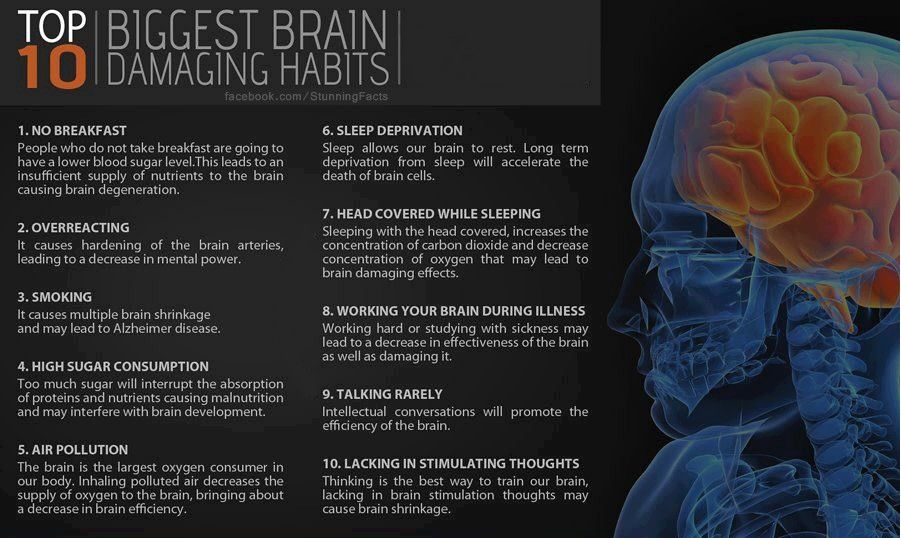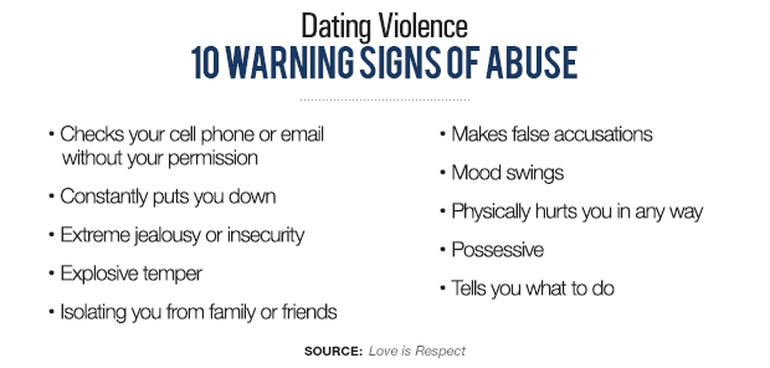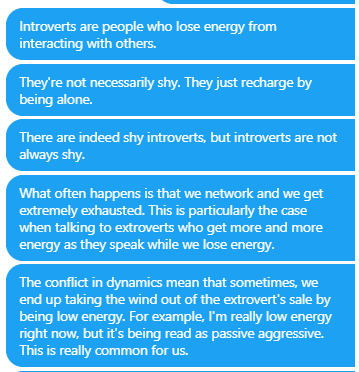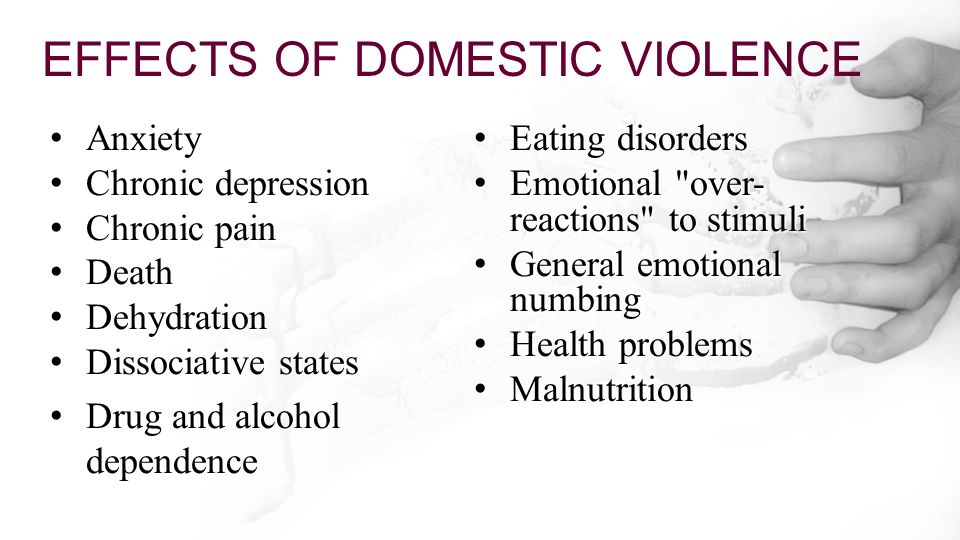Professional marriage counselling
Timing Is Everything When It Comes To Marriage Counseling
According to relationship and marriage expert Dr. John Gottman, couples wait an average of six years of being unhappy before getting help.
According to relationship and marriage expert Dr. John Gottman, couples wait an average of six years of being unhappy before getting help.
According to relationship and marriage expert Dr. John Gottman, couples wait an average of six years of being unhappy before getting help.
People often contact me looking for marriage advice. They ask me “Can my marriage be saved?” or “Can you help us decide if we should stay together?” While these are complicated questions, my answer is usually something like: “Marriage counseling is hard work and there are no guarantees. But you are wise to invest the time to find out if your marriage can be improved.”
Truth be told, the effectiveness of marriage counseling is directly related to the motivation level of both partners and timing. For some couples, marriage counseling is really divorce counseling because they’ve already thrown in the towel. For instance, one or both partners may have already decided to end the marriage and he/she uses the counseling as a way to announce this to their partner. Sometimes, the problems in a marriage can be too ingrained and longstanding for the counseling to be effective. For others, they don’t honestly share their concerns with the therapist.
Further, it’s important to choose a therapist who has experience working with couples and who is a good fit for both you and your partner. If both partners don’t feel comfortable with the therapist, this can negatively impact progress; or one person may prematurely drop out.
Timing is an essential element in whether marriage counseling works. Unfortunately, most couples wait much too long to reach out for help repairing their marriage. According to relationship and marriage expert Dr. John Gottman, couples wait an average of six years of being unhappy before getting help. Think about this statistic for a few minutes. Couples have six years to build up resentment before they begin the important work of learning to resolve differences in effective ways.
Think about this statistic for a few minutes. Couples have six years to build up resentment before they begin the important work of learning to resolve differences in effective ways.
For instance, Rachel and Jeff sat down on my sofa and began sharing their long-standing feud over how to manage finances and whether or not Rachel could return to college to obtain a degree in a education so she can change jobs. “We just have the same argument over and over again with no resolution,” says Rachel, “I’ve been working in an insurance company for ten years and hate my job but Jeff is blocking my attempts to enter a field that would make me happy.”
When it’s Jeff’s turn to give his take on things he says: “We just bought a house and have two young children. This simply isn’t a good time for Rachel to get a degree. I helped her get through her undergraduate degree in her mid-twenties when we were first married and she doesn’t even know if she’ll enjoy being a teacher.”
Perhaps the first step to helping Rachel and Jeff work on improving their relationship is to encourage them to agree on defining the main problem in their marriage and for both of them to take responsibility for their own behavior — so that they can begin to communicate honestly, set some goals, and begin working on them.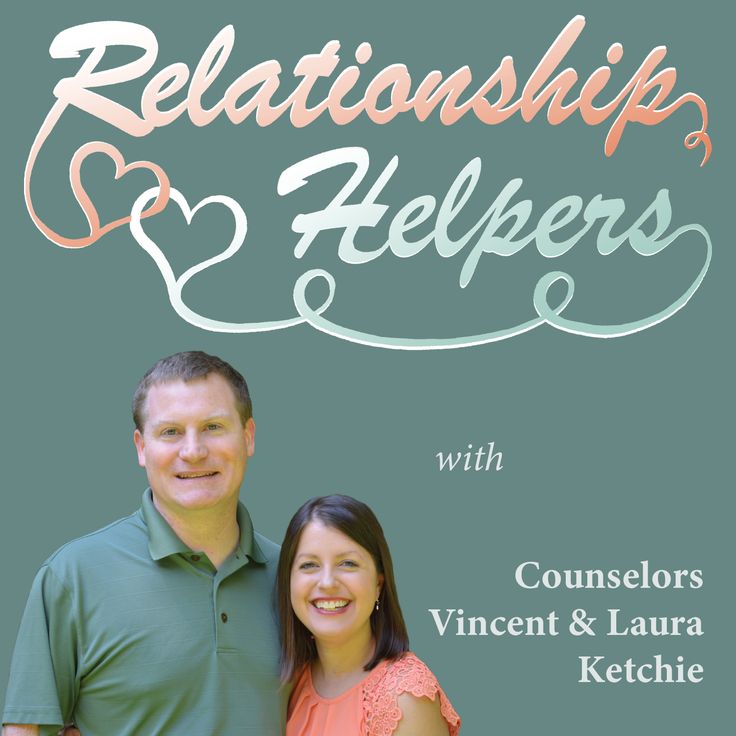 However, they need to have realistic expectations since it can be a challenge to negotiate when both partners have busy careers and children.
However, they need to have realistic expectations since it can be a challenge to negotiate when both partners have busy careers and children.
It’s critical that couples see conflict as an inevitable part of a committed, romantic relationship. After all, every relationship has its ups and downs, and conflict goes with the territory. Yet couples might avoid conflict because it may have signified the end of their parents’ marriage or led to bitter disputes. Michele Weiner Davis, author of The Divorce Remedy explains that avoiding conflict backfires in intimate relationships. She posits that bottling up negative thoughts and feelings doesn’t give your partner a chance to change their behavior. On the other hand, Weiner cautions that one of the secrets of a good marriage or romantic relationship is learning to choose battles wisely and to distinguish between petty issues and important ones.
In his best selling book The Seven Principles for Making Marriage Work, John M. Gottman, Ph.D., describes “marital masters” as “folks who are so good at handling conflict that they make marital squabbles look like fun.” Gottman has published groundbreaking studies demonstrating measurable differences between couples whose marriages were happy and those headed for misery and/or divorce. In his book The Relationship Cure, he writes: “It’s not that these couples don’t get mad or disagree. It’s that when they disagree, they’re able to stay connected and engaged with each other. Rather than becoming defensive and hurtful, they pepper their disputes with flashes of affection, intense interest, and mutual respect.”
Gottman, Ph.D., describes “marital masters” as “folks who are so good at handling conflict that they make marital squabbles look like fun.” Gottman has published groundbreaking studies demonstrating measurable differences between couples whose marriages were happy and those headed for misery and/or divorce. In his book The Relationship Cure, he writes: “It’s not that these couples don’t get mad or disagree. It’s that when they disagree, they’re able to stay connected and engaged with each other. Rather than becoming defensive and hurtful, they pepper their disputes with flashes of affection, intense interest, and mutual respect.”
7 tips to help deal with differences between you and your partner:
- Create a relaxed atmosphere and spend time with your partner on a regular basis so you can communicate about your desires and objectives.
- Don’t give up personal goals and the things you love to do such as hobbies or interests. This will only breed resentment.

- Support one another’s passions. Accept that you won’t always share the same interests. Respect your partner’s need for space if they want to go on a vacation without you, etc.
- Learn to resolve conflicts skillfully. Don’t put aside resentments that can destroy a relationship. Couples who try to avoid conflict are at risk of developing stagnant relationships, which can put them at high risk for divorce.
- Establish an open-ended dialogue. Listen to your partner’s requests and ask for clarification on points that are unclear. Avoid threats and saying things you’ll regret later.
- Avoid the “blame game.” Take responsibility for your part in the problems and accept that all human beings are flawed in some way. The next time you feel upset with your partner, check out what’s going on inside yourself and pause and reflect before you place the blame on them.
- Be realistic about a time-line for change. It takes more than a few sessions to shed light on the dynamics and to begin the process of change.

Couples can benefit from reminding each other of Dr. John Gottman’s guiding principle of adding more positive interactions — a five-to-one ratio. In other words, for every negative interaction with your partner, add five positive ones. Don’t take love for granted and adopt a mindset that differences can spark passion and interest. Ultimately, you are responsible for your own happiness.
Further, Gottman coins the phrase turning toward one another to describe how couples can learn to react in a positive way to one another’s bids for attention rather than “turning away” — which generally involves ignoring a partner’s bid, or acting preoccupied. He writes, “turning toward one another is a kind of secret weapon against elements such as contempt, criticism, defensiveness, and stonewalling — factors that can destroy any relationship.”
How can marriage counseling help couples?
- If toxic relationship patterns can be identified early and agreed upon, the process of real change can begin.

- A motivated couple can begin to explore their problems from a new perspective and learn new ways to recognize and resolve conflicts as a result of the tools provided by the therapist.
- Partners can begin to build trust and improve communication that may have eroded the quality of their interactions.
- A couples counselor can provide “neutral territory” to help couples agree upon and work through tough issues with support.
- Couples can decide to rebuild their marriage and make a renewed commitment, or clarify the reasons why they need to separate or end the marriage.
In closing, Dr. John Gottman reminds us that friendship is the glue that can hold a marriage together: “Couples who know each other intimately [and] are well versed in each other’s likes, dislikes, personality quirks, hopes, and dreams are couples who make it.”
This article originally appeared on The Huffington Post.
The Marriage Minute is a new email newsletter from The Gottman Institute that will improve your marriage in 60 seconds or less.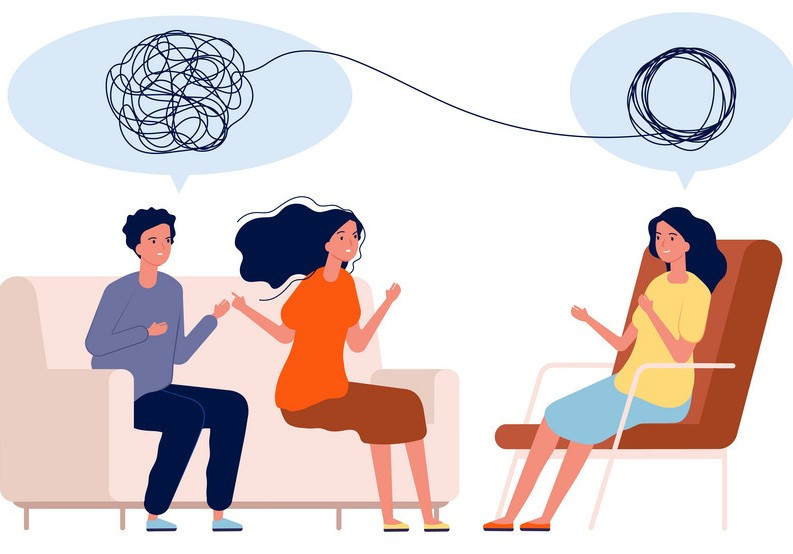 ="wpforms-"]
="wpforms-"]
How to Find a Couples Therapist Who Can Actually Help You
Tips to help you find a competent and effective couples therapist.
Tips to help you find a competent and effective couples therapist.
Tips to help you find a competent and effective couples therapist.
How to find a couples therapist? Practically every week, I receive emails from couples who have spent 16+ months in therapy. So I ask…
- How has your relationship improved?
- What skills did you learn to build a stronger friendship or manage conflict in healthy ways?
- Do you feel you address the core issues that create disconnection?
The response: “Well… it was a lot of venting…and things haven’t changed.”
Even worse, therapists who do not have professional couples therapy training often open their doors to couples.1
“Therapists who advertise as couple therapists may only be trained in individual therapy, which differs dramatically from couple therapy.
”
– Hawkins, Fackrell, & Harris, Should I Try to Work it Out?
Sometimes this is why I hear from couples who have seen 4-5 therapists with little to no changes, or no clarity on why they have stayed stuck such as lack of commitment, unwilling to take ownership of problematic behavior, among other things.
For this reason, I want to offer you a few quick tips to help you find a competent and effective couples therapist who can support you in transforming your relationship challenges into material to build a stronger and more meaningful bond.
4 Tips to Find a Competent Couples Therapist
Below are tips on finding and choosing a counselor or therapist who can support you and your partner.
Step 1: Search for Therapists with Specialized Training in Couples Therapy
Make sure the type of therapist you see (psychologist, marriage and family therapists, professional counselor, social worker, or pastoral counselor) is licensed in your state and has specific training and supervision in couples therapy approaches. Not all therapists have this training. Furthermore, not all therapists who do get the couples therapy training receive supervision from certified therapists of that method to ensure they are applying the techniques and interventions in ways that can lead to changes for the client’s relationship.
Not all therapists have this training. Furthermore, not all therapists who do get the couples therapy training receive supervision from certified therapists of that method to ensure they are applying the techniques and interventions in ways that can lead to changes for the client’s relationship.
Some of the more popular approaches with professional training and supervision that I know include:*
- The Gottman Method Couples Therapy
- Emotionally Focused Couples Therapy (EFT)
- The Psychobiological Approach of Couples Therapy (PACT)
- The Developmental Model of Couples Therapy
- Relational Life Therapy
- Discernment Counseling
- Integrative Behavioral Couples Therapy (IBCT)
*Note, to find a therapist with this approach, click the link on that approach above
Additional places to search for couples therapists include: American Association of Marriage and Family Therapy, Psychology Today, and Marriage Friendly Therapists.
It’s also important to seek out therapists who align with the way relationships work for you without you having to teach your therapist terminology. For inclusive therapists in the United States who have specific training on sexuality, nonmonogamy, and kink/BDSM, as well as gender identity/expression, look for therapists who are also certified sex therapists of the American Association of Sexuality, Educators, Counselors, and Therapists as those therapists undergo specialized training for working with erotically marginalized clients.
If you’re comfortable with it, another way to find a good therapist is to ask friends or co-workers who have had a good couples therapists if they could make a recommendation.
During this step, you may also want to explore how to pay for therapy. It’s worth noting that a more expensive therapist does not always mean you will receive better therapy or faster improvements.2 While therapy is expensive, if it helps save and repair your marriage, it will be less expensive than a divorce in the long-run.
For additional cost-saving ideas, check your insurance or with your company’s Employee Assistance Program (EAP). Additionally, some therapists have sliding fees for lower income couples, and universities have couples therapy training programs that offer therapists-in-training with quality supervision at affordable rates. For a list of accredited universities to reach out to, go here.
Step 2: Interview Potential Therapists During the First Session or On The Phone
Now that you’ve found some possible therapists to work with, I would recommend getting to know them to make sure they are a good fit for you and you are a good fit for them. Here are some questions you can ask:
- Did you receive formal education and supervised training in couples therapy?
- What percentage of your work is with couples? Note: Those who specialize in couples therapy may have greater experience working with couples.
- What is your opinion about divorce? Do you ever recommend divorce? What occurred with past clients that lead you to come to that recommendation? In the absence of abuse or danger, will you support the possibility that we can salvage our marriage/relationship? Note: You want a therapist who is going to align with what you want as a client for your relationship with the exception of a partner who is unwilling to be remorseful and change when it comes to affairs, addictions, and abuse.

- What percentage of couples you’ve worked with have seen improvement as a result of therapy with you?
- What do you believe makes a relationship successful? How do you know change has occurred for a relationship that was not doing so well before therapy? Note: Your therapist’s belief systems will influence therapy. Effective couples therapy helps both partners truly understand one another and offers a plan, as well as tools, the couple can use for fostering a stable connection between partners. If the therapist only focuses on changing what you should do such as date night, without also exploring what has got in the way from this occurring prior to therapy, the positive changes may not last.
- If you are seeking help with nonmonogamy, diverse expressions of sexuality, BDSM, and/or gender identity, it would be helpful to check your therapist’s viewpoints on this topic as well as their level of experience. What are your views on [insert what applies to you]?
- What does working with you look like? Note: Ask about the structure of sessions, the length of sessions, how long the assessment process is, how the end of treatment is decided, and if there is follow-up.
 You want a therapist who has a clear plan of action and follows through on that plan. For example, Gottman trained therapists tend to structure sessions around specific levels of the Sound Relationship House with the aim of improving the strength and stability of the house as a whole. Sessions are typically 90-minutes and some therapists do marathon sessions that are six plus hours a day as offered in the Love Lab. At the end of treatment, the therapist checks-in for up to two years to ensure the changes made during treatment are lasting and if there are any tiny tweaks needed to ensure things stay in a stable place.
You want a therapist who has a clear plan of action and follows through on that plan. For example, Gottman trained therapists tend to structure sessions around specific levels of the Sound Relationship House with the aim of improving the strength and stability of the house as a whole. Sessions are typically 90-minutes and some therapists do marathon sessions that are six plus hours a day as offered in the Love Lab. At the end of treatment, the therapist checks-in for up to two years to ensure the changes made during treatment are lasting and if there are any tiny tweaks needed to ensure things stay in a stable place.
Step 3: Couples who Stick with Therapy, Improve
If the above steps are met with your therapist, I would encourage you to avoid dropping out early. Research shows that couples who stick with therapy show the most improvements long-term.3
Experienced and effective couples therapists know that there is a difference between improvements from addressing surface issues and the lasting improvements that come from addressing the root problems. It’s possible that within the first handful of sessions, you may see significant improvements. With this in mind, consider committing to eight to ten sessions before evaluating whether therapy is working. This way you are ensuring both the surface issues and the deeper issues are being touched on.
It’s possible that within the first handful of sessions, you may see significant improvements. With this in mind, consider committing to eight to ten sessions before evaluating whether therapy is working. This way you are ensuring both the surface issues and the deeper issues are being touched on.
Step 4: Remember, This is Your Therapy and Your Relationship
One of the hardest things for me as a client in therapy was to be honest with my therapist about what I found helpful and what I did not. Or expressing that my therapist completely misunderstood me. In those moments, a part of me really wanted to shut down and then terminate therapy before the next session.
Instead, I tolerated my anxiety and discomfort and shared that I felt misunderstood. And I opened up about what I didn’t like.
Good therapists understand that what works for one couple may not work for another and if you share with them what works vs. doesn’t work for you, they can then adjust how they work with you and your relationship.
If you feel misunderstood, I would encourage you to share that as that will help your therapists understand you better.
Maybe that is part of your work in therapy, to be more assertive about what you need, rather than quietly hold it in. Which ultimately will translate to your romantic relationship. And if this is still a struggle for you, don’t be afraid to send your therapist an email sharing what you’re having a tough time with. Your couples therapist is there to help you and they need your input to make therapy effective for you.
At times therapy will feel difficult. It may feel like you are facing a lot of resistance and keep getting stuck in the same spot.
This can be an indicator that you’re also on the edge of a breakthrough because you are getting caught in the emotional dance that creates a felt sense of disconnection and alienation, or results in escalating conflicts between the two of you.
A quality therapist will help you recognize the dance you co-create as well as help shift how you communicate and emotionally connect with each other so you can begin to change your patterns.
Couples therapy can be effective with a qualified and well-trained professional.
Often, it will challenge you and your partner to break the rules you’ve created that get you stuck in the first place. But during the process, a therapist can help you build new bridges of connection that can create feelings of intimacy, being seen, and feeling cared for.
Want to find a Gottman-trained couples therapist in your area or who does online therapy? Search the Gottman Referral Network and find a therapist you can trust.
1 Doherty, W. J. (2002). How therapist harm marriages and what we can do about it. Journal of Couple and Relationship Therapy, 1, 1-17.
2 Ward, D., & McCollum, E. (2005). Treatment effectiveness and its correlates in a marriage and family therapy training clinic.
3 Ibid.
Kyle Benson
Kyle works in The Love Lab where he nerds out on the science of relationships. ="wpforms-"]
="wpforms-"]
Psychological counseling for clients of a marriage agency on the issue of choosing a marriage partner: outlines of the problem
Author : Petrushova Ekaterina Alexandrovna
Rubric : Psychology
Posted by in young scientist No. 21 (101) November-1, 2015
Publication date : 03.11.2015 2015-11-03
Article viewed: 1206 times
Download electronic version
Download Part 7 (pdf)
References:
Petrushova, E. A. Psychological counseling of clients of a marriage agency on the choice of a marriage partner: the contours of the problem / E. A. Petrushova. - Text: direct // Young scientist. - 2015. - No. 21 (101). - S. 723-725. — URL: https://moluch.ru/archive/101/22945/ (date of access: 06.11.2022).
A. Psychological counseling of clients of a marriage agency on the choice of a marriage partner: the contours of the problem / E. A. Petrushova. - Text: direct // Young scientist. - 2015. - No. 21 (101). - S. 723-725. — URL: https://moluch.ru/archive/101/22945/ (date of access: 06.11.2022).
The choice of a marriage partner is the very first and most important stage in marriage and family relations, on which the entire future life of a person often depends. By unfortunately, in the question of choosing a partner for marriage in people quite often encounter various difficulties. Psychological counseling at the stage of choosing a marriage partner is extremely necessary, it is designed to help a person cope with The difficulties of the stage of selection of a marriage partner and contribute to a conscious marriage choice, which in will further become a bore of stability in marriage and family relations.
Keywords: choice, marriage partner, marriage agency, family, psychological counseling.
It is known that having a family gives a person the opportunity to satisfy basic needs, such as the need for food, comfortable sleep, security and protection, belonging, emotional attachment, self-esteem, the need to be loved and loved. Relationships with close people are an important resource for confirming one's own significance, usefulness, and value. Receiving feedback from a partner helps to strengthen self-esteem through recognition of the importance of the role that a person plays in these relationships.
Today, the world is experiencing a crisis state of the institution of the family. Evidence of this is the increase in the number of non-traditional alternative forms of marriage and family relations, reflecting the instability of the family, the increase in the number of children born out of wedlock, the simplification and weakening of intra-family ties, the focus on having few children, and the increase in the number of civil, unregistered marriages. Russia is also experiencing similar changes. According to Rosstat, the age of marriage has increased significantly: from the group of 18 to 24 years, there has been a shift in favor of the group of 25 to 34 years and older for both men and women [8]. Accordingly, the age for the birth of the first child also increases. All this negatively affects the birth rate and demographics in general.
Russia is also experiencing similar changes. According to Rosstat, the age of marriage has increased significantly: from the group of 18 to 24 years, there has been a shift in favor of the group of 25 to 34 years and older for both men and women [8]. Accordingly, the age for the birth of the first child also increases. All this negatively affects the birth rate and demographics in general.
Nevertheless, in our country, the orientation of the population towards traditional marriage remains. According to Rosstat, the number of people entering into marriage has remained at a stable level over the past ten years - 8.3-8.8 per thousand people [9]. The same trend is observed in the Arkhangelsk region, as evidenced by the data of the Federal Statistics Service for the Arkhangelsk region - 8.0–8.9 per thousand people [7].
In September-October 2009, Rosstat conducted a sample survey "Family and Fertility". The survey was conducted in 30 subjects of the Russian Federation, representing all federal districts.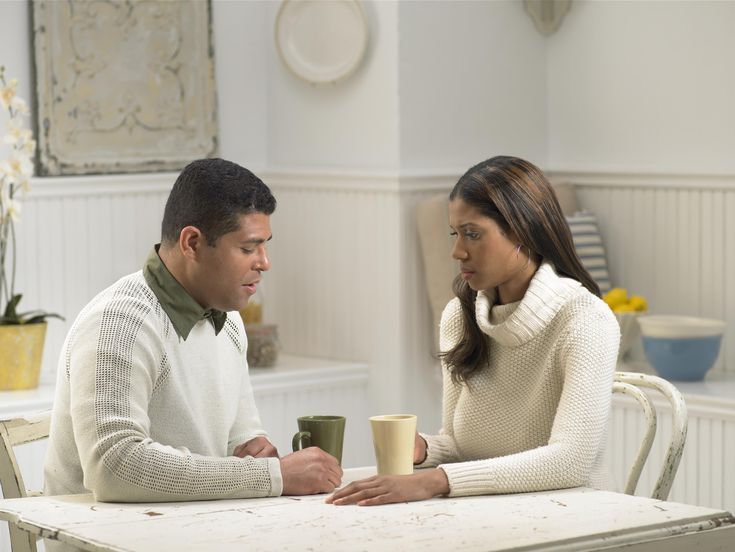 A total of 19 were interviewed99 people, including 1118 women and 881 men. During the survey, women under the age of 45 were interviewed; men had no age restrictions. Among all respondents, urban residents accounted for 71.4%, rural residents - 28.6%. According to the survey, 85% of respondents are married. Regarding the need to register the first marriage, men and women are unanimous. Slightly more than 60% of respondents consider the registration of the first marriage mandatory, about a third - desirable. The desire to create a family and enter into an official marriage is desirable in remarriage and prevails in the first marriage [8].
A total of 19 were interviewed99 people, including 1118 women and 881 men. During the survey, women under the age of 45 were interviewed; men had no age restrictions. Among all respondents, urban residents accounted for 71.4%, rural residents - 28.6%. According to the survey, 85% of respondents are married. Regarding the need to register the first marriage, men and women are unanimous. Slightly more than 60% of respondents consider the registration of the first marriage mandatory, about a third - desirable. The desire to create a family and enter into an official marriage is desirable in remarriage and prevails in the first marriage [8].
The family remains the primary social basis that forms the moral and mental make-up of the individual, transmits family and tribal values to the younger generations, and determines the stability of the state. The family continues to be seen as a source of support in the professional and personal development of a person, which is a powerful means of his development and emotional well-being. Therefore, the search and choice of a marriage partner to create a family is relevant for most people in modern Russian society.
Therefore, the search and choice of a marriage partner to create a family is relevant for most people in modern Russian society.
The choice of a marriage partner is the very first and most important stage in marriage and family relations, on which the whole future life of a person often depends. Unfortunately, in the matter of choosing a partner for marriage, people quite often encounter various difficulties: someone cannot make a choice when there are alternative options, and someone has no one to choose from. For people who are in search of a life partner, difficulties in choosing a marriage partner can arise both for objective and subjective reasons. The author's experience in the practical activities of a marriage agency shows that objective reasons include living conditions, such as remoteness, high employment as a result of building a career or scientific activity, working conditions, such as frequent long business trips and a same-sex team, serious illness, disability. Subjective reasons include personal characteristics of a person, parental attitudes, life experience, socio-cultural environment. Subjective reasons are the source of the formation of irrational emotional and cognitive attitudes (beliefs, beliefs) in a person, and lead to such psychological difficulties as unformed criteria or, on the contrary, categorical and (or) excessive requirements for the criteria for marriage choice, inadequate motivation for marriage choice, low psychological readiness to family life.
Subjective reasons include personal characteristics of a person, parental attitudes, life experience, socio-cultural environment. Subjective reasons are the source of the formation of irrational emotional and cognitive attitudes (beliefs, beliefs) in a person, and lead to such psychological difficulties as unformed criteria or, on the contrary, categorical and (or) excessive requirements for the criteria for marriage choice, inadequate motivation for marriage choice, low psychological readiness to family life.
Some people are unable to overcome these difficulties on their own, find and choose a partner to create a family, and they turn to marriage agencies for help. A marriage agency is an organization that offers a service of searching for candidates of the opposite sex with the goal of creating a family, and organizes acquaintance with them. In our country, marriage agencies exist in almost every city, as evidenced by the large number of websites of marriage agencies. Many marriage agencies employ professional psychologists who offer their clients an individual approach and selection of candidates, taking into account psychological compatibility. But in order to form a couple, the psychologist of the marriage agency needs not only to take into account the client’s expectations, but also to understand what exactly the characteristics of the person who applied for are, what difficulties the client had at the stage of choosing a marriage partner, and also know what methods it is advisable to use to provide psychological assistance to overcome subjective difficulties. That is, psychologists in marriage agencies need to have diagnostic tools to study the characteristics of clients and their difficulties that impede marriage choice, as well as a psychological counseling program to help their clients experiencing subjective difficulties. Psychological counseling at the stage of choosing a marriage partner is extremely necessary, it is designed to help a person cope with the difficulties of the stage of choosing a marriage partner and contribute to a conscious marriage choice, which in the future will become the key to the stability of marriage and family relations.
But in order to form a couple, the psychologist of the marriage agency needs not only to take into account the client’s expectations, but also to understand what exactly the characteristics of the person who applied for are, what difficulties the client had at the stage of choosing a marriage partner, and also know what methods it is advisable to use to provide psychological assistance to overcome subjective difficulties. That is, psychologists in marriage agencies need to have diagnostic tools to study the characteristics of clients and their difficulties that impede marriage choice, as well as a psychological counseling program to help their clients experiencing subjective difficulties. Psychological counseling at the stage of choosing a marriage partner is extremely necessary, it is designed to help a person cope with the difficulties of the stage of choosing a marriage partner and contribute to a conscious marriage choice, which in the future will become the key to the stability of marriage and family relations.
Unfortunately, in domestic psychology, the specifics of the premarital and premarital periods have rarely been the subject of theoretical and practical research. In modern psychological practice, one can single out contradictions between the variety of approaches to family counseling and the insufficient representation of a holistic, systematic presentation of the specifics of psychological counseling for people who are in search of a life partner on the issue of choosing a marriage partner. I. Malkina-Pykh developed recommendations for individual premarital and premarital psychological counseling, but without taking into account the typology of difficulties that arise at the stage of choosing a marriage partner [4]. N. I. Olifirovich developed the socio-psychological training "Formation of young people's readiness for family life" [5], and N. Volkova - the methodology "Role expectations and claims in marriage" [3].
Certain aspects of the problem of choosing a marriage partner were covered in the works of M. A. Abalakina in a theoretical model of the correlation between the processes of interpersonal perception and the dynamics of premarital relations [1]. B. Yu. Shapiro reveals the specifics of the premarital communication of young people and its significance for the future marriage [10], Z. I. Aigumova and V. R. Aigunov - features of the motivation for choosing a marriage partner, but only among young people, and in the context of a comparative analysis of Russian and Dagestan cultures [2]. Yu. E. Aleshina, V. A. Sysenko, V. I. Shtilbans analyze the problems of stability of marriage and the psychology of marital relations, L. P. Pankova highlights the issue of ethics and psychology of family life [6].
A. Abalakina in a theoretical model of the correlation between the processes of interpersonal perception and the dynamics of premarital relations [1]. B. Yu. Shapiro reveals the specifics of the premarital communication of young people and its significance for the future marriage [10], Z. I. Aigumova and V. R. Aigunov - features of the motivation for choosing a marriage partner, but only among young people, and in the context of a comparative analysis of Russian and Dagestan cultures [2]. Yu. E. Aleshina, V. A. Sysenko, V. I. Shtilbans analyze the problems of stability of marriage and the psychology of marital relations, L. P. Pankova highlights the issue of ethics and psychology of family life [6].
As you can see, in the domestic psychological literature and in psychological practice, the specifics of the premarital relationship of a couple from the moment they met are mainly considered, the issues of preparing young people for family life or the stability of marriage and the psychology of family relations are covered, and the stage of choosing a marriage partner is practically not considered.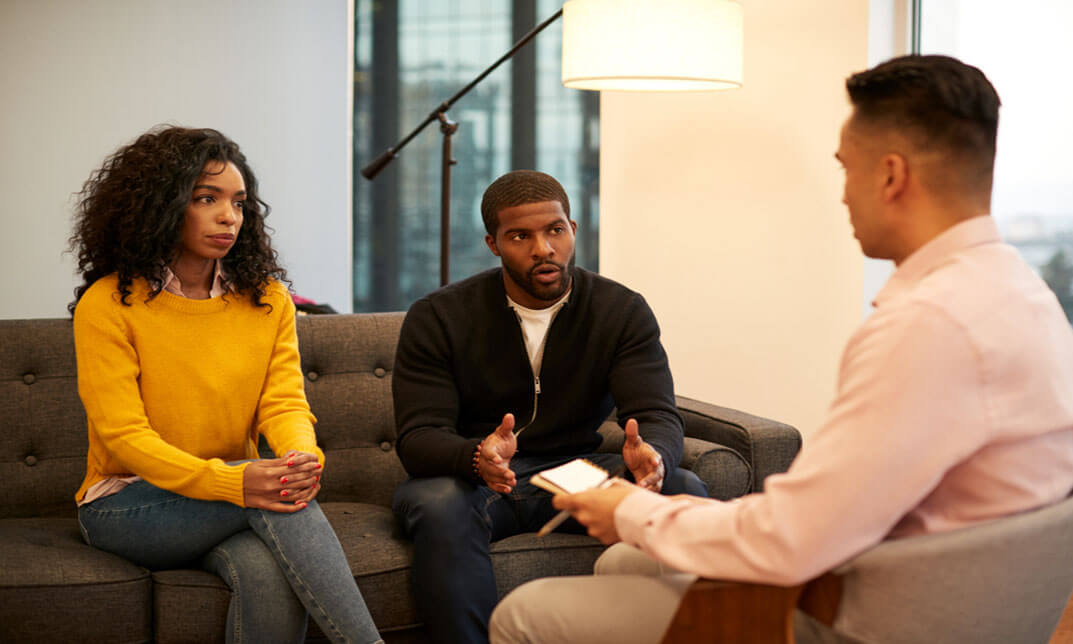 But in none of the works the client of the marriage agency was studied, there is no knowledge of how to provide psychological assistance to such a client. The typology of difficulties that arise in people who are in search of a life partner has not been studied; there are no developed programs for diagnostics and counseling on the topic of choosing a marriage partner. There is a huge need for such theoretical knowledge on the part of practitioners, but, unfortunately, there is no feedback from the scientific community yet. It is possible that practitioners, in particular psychologists in marriage agencies, have methods of psychological counseling on the topic of difficulties in choosing a marriage partner, but they are not covered anywhere and are not scientifically substantiated.
But in none of the works the client of the marriage agency was studied, there is no knowledge of how to provide psychological assistance to such a client. The typology of difficulties that arise in people who are in search of a life partner has not been studied; there are no developed programs for diagnostics and counseling on the topic of choosing a marriage partner. There is a huge need for such theoretical knowledge on the part of practitioners, but, unfortunately, there is no feedback from the scientific community yet. It is possible that practitioners, in particular psychologists in marriage agencies, have methods of psychological counseling on the topic of difficulties in choosing a marriage partner, but they are not covered anywhere and are not scientifically substantiated.
In this regard, a number of questions arise that need to be clarified by both theorists and practitioners: what is the client of a marriage agency? What difficulties does he experience at the stage of choosing a marriage partner? What technologies can be proposed to diagnose these difficulties? What methods and techniques should be used to provide psychological assistance in overcoming the difficulties of the stage of choosing a marriage partner? The answers to these questions will help marriage agencies in providing psychological assistance to their clients, which in a global sense will help increase marriage rates and improve the demographic situation in our country.
Literature:
- Abalakina M.A. The study of interpersonal perception in a premarital couple. Abstract for a dissertation for the degree of candidate of psychology, M., 1987. - Access mode: http://www.dissercat.com/content/mezhlichnostnoe-vospriyatie-i-dinamika- predbrachnykh-relations
- Aigumova Z. I. and Aigunov V. R. Motivation for choosing a spouse Monograph - M .: Prometheus MPGU, 2010. - 216 p.
- Volkova A.N., Trapeznikova T.M. Methodological methods for diagnosing marital relations // Questions of Psychology. - 1985. - N5. — pp. 110–116
- Malkina-Pykh I. G. Family therapy. — M.: Eksmo, 2005–84 p.
- Olifirovich N. I., Velenta T. F., Zinkevich-Kuzemkina T. A. Therapy of family systems - St. Petersburg: Rech, 2012. - 570 p.
- Pankova L. M. At the threshold of family life. - M: Enlightenment, 1991. - 144 p.
- Federal State Statistics Service Territorial body of the Federal State Statistics Service for the Arkhangelsk Region — Access mode: http://arhangelskstat.
 gks.ru/wps/wcm/connect/rosstat_ts/arhangelskstat/ru/statistics/population/
gks.ru/wps/wcm/connect/rosstat_ts/arhangelskstat/ru/statistics/population/ - Federal State Statistics Service - Access mode: http://www.gks.ru/free_doc/2010/family.htm
- Federal State Statistics Service - Access mode: http://www.gks.ru/wps/wcm/connect/rosstat_main/rosstat/ru/statistics/population/demography/#
- Shapiro B. Yu. From acquaintance to marriage. - M: Enlightenment, 1989. - 166 p.
Basic terms (automatically generated) : marriage partner, marriage agency, psychological counseling, selection stage, psychological assistance, family life, difficulty, marriage choice, search for a life partner, family creation.
Keywords
choice, a family, psychological counseling, marriage partner, marriage agencychoice, marriage partner, marriage agency, family, psychological counseling
Similar articles
Motives
choice marriage partner | Article in the collection. ..
.. Psychological counseling clients marriage agency on the issue of choice marriage partner : contours problems .
Psychological characteristic choice marriage partner ...
Psychological counseling clients marriage agency on the issue choice marriage partner : contours 9 .
Trends
Choice marriage partner young people... Psychological counseling clients marriage agency on the issue choice marriage partner : contours 9 .
Features of motives
choice marriage partner among students...The design of the study was determined by the hypothesis: motives choice of marriage partner can be determined by belonging to a certain social psychological personality type. Analysis of scientific literature shows...
Gender attitude to the perception of civil marriage
- a systematic approach to the family (subsystem marital relations ) (M. Bowen, V. Satir, S. Minukhin, A. Ya. Varga, A. G. Liders, O. A. Karabanova, etc.) contemplating marital relationship from the position of arbitrary choice marriage partner (R. Winch, A. Kergoff, K...
Relations between spouses in a young family
| Journal article. ..
.. Choosing your companion life is a rather complicated process.
Basic terms (automatically generated): friend, spouse, family , parent, need, relationship, conflict, young family , marriage union, family life .
Problems of studying the image of
partner in premarital...Choosing a marriage partner and clarifying the decision made often falls on the student period, the age limits of which coincide with the period of adolescence according to G.S. Abramova (from 18 to 22 years).
Psychological adult counseling ...
Psychological counseling clients marriage agency on the issue choice marriage partner : contours 9 . Formation of cognitive activity in the lessons of French as a second foreign language.
Formation of cognitive activity in the lessons of French as a second foreign language.
Similar articles
Motives
choice marriage partners | Article in the collection...Psychological counseling clients marriage agency on the issue choice marriage partner : contours 9 .
Psychological characteristic choice marriage partner ...
Psychological 9.
Trends
choice marriage partner young people... Psychological counseling clients marriage agency on the issue choice marriage partner : contours problems .
Features of motives
choice marriage partner among students...The structure of the study was determined by the following hypothesis: the motives for choosing a marriage partner can be determined by belonging to a certain social psychological personality type. Analysis of scientific literature shows...
Gender attitude to the perception of civil marriage
- a systematic approach to the family (subsystem marital relations ) (M. Bowen, V. Satir, S. Minukhin, A. Ya. Varga, A. G. Liders, O. A. Karabanova, etc.) considering marital relations from the position of an arbitrary choice marriage partner (R. Winch, A. Kergoff, K...
Relationships between spouses at young
family | Journal article. ..
.. Choosing your companion life is a rather complicated process.
Basic terms (automatically generated): friend, spouse, family , parent, need, relationship, conflict, young family , marriage union, family life .
Problems of studying the image of
partner in premarital...The choice of a marriage partner and the clarification of the decision made often falls on the student period, the age limits of which coincide with the period of adolescence according to G.S. Abramova (from 18 to 22 years).
Psychological adult counseling ...
Psychological counseling clients marriage agencies on the issue choice marriage partner : contours problems . Formation of cognitive activity in the lessons of French as a second foreign language.
Formation of cognitive activity in the lessons of French as a second foreign language.
Marriage counseling. Psychological Center TRANSFORMATION
Published: 04/03/2019 in sections: Family Psychology and Family Therapy
Also known as couples therapy, marriage counseling is a form of therapy that supports people in intimate relationships. Working with a psychologist is helpful for people who are contemplating divorce, or who want to improve intimacy and understanding. While the relationship itself is the focus of family counseling, everyone should pay attention to self-improvement and self-awareness.
Find the right therapist
Consider whether a marriage counselor is right for both partners before planning a session. It is important to choose an expert who:
- Has received the necessary training, in working with families
- Has experience in dealing with specific issues
- Develops a clear treatment plan with you
- Shows empathy
- Does not take sides
- Does not allow one of the spouses to interrupt the other
- Maintains control over each session
- Easily accessible
- Charges affordable appointment fees
Family counseling approaches
Tools and methods vary depending on the counselor's background and the issues facing the family seeking help.![]() Some general areas include:
Some general areas include:
- Relationship Therapy - explores the causes of negative perceptions or behaviors in a union and seeks to reconnect.
- Emotionally oriented school - creates new, positive interactions between spouses and strengthens their emotional connection.
- Internal family systems therapy helps to better understand each other and the patterns of your union.
- The Gottman Method increases intimacy, affection and respect.
- The development model is aimed at the growth and development of each as an individual and also as a couple.
- Positive psychology teaches you to focus on positive qualities and live in the present.
- Narrative - examines past problems from different points of view, gives an understanding of what changes are needed.
- Individual counseling can serve as a precursor to pair work. This option is for people when the spouse does not want to come to the consultation.
How does it work?
The purpose of marriage counseling is to help families learn about each other and develop healthy problem-solving skills. A marriage counselor may conduct a session with two participants together or individually during the first few meetings. After that, they will provide feedback. With the guidance of a therapist, the couple develops goals and a plan so that each person knows what to expect. Positive outcomes often depend on the couple's motivation and dedication to the process.
A marriage counselor may conduct a session with two participants together or individually during the first few meetings. After that, they will provide feedback. With the guidance of a therapist, the couple develops goals and a plan so that each person knows what to expect. Positive outcomes often depend on the couple's motivation and dedication to the process.
Clients improve their listening and communication skills as they progress. They also learn to support each other in new ways. Often conflict arises in sessions. An ethical family psychologist will remain neutral and avoid taking sides. Some experts offer additional individual sessions to each participant as a standard part of psychotherapy. Others may offer personal sessions upon request.
Meetings are usually held once a week. Schedules vary depending on goals and whether family members attend additional individual and group sessions. The process is often short-term, although relationship changes may take longer. Ultimately, the work will continue until you decide to finish or reach your goals.
Ultimately, the work will continue until you decide to finish or reach your goals.
For whom?
Any couple who has a history will benefit from seeing a therapist. Spouses seek advice to resolve problems, gain insight into family dynamics, strengthen their emotional bonds, or find amicable ways to end their marriage. Because we all experience tension or conflict at some point in our families, many people are unsure when they should seek professional help.
Among the main reasons:
Therapy is also helpful if you have made firm decisions about your future.
A couple in a healthy relationship may seek advice on how to increase intimacy or find new ways to communicate emotionally. Those who have already decided to leave use counseling to leave on respectful terms. Premarital counseling helps to explore areas of conflict or anxiety that may cause difficulties or dissatisfaction in a marriage. Psychotherapy allows you to discuss differences in opinions, personal values and expectations, to assess whether you are really compatible before entering into a marriage union.


